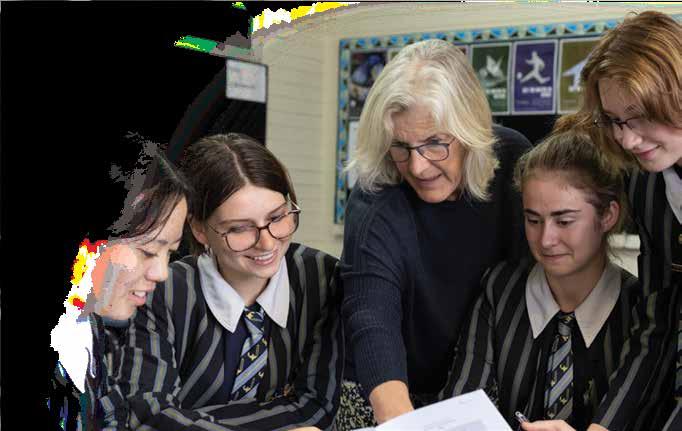
2 minute read
Queen Margaret College's Approach to Embracing New Technologies in Education
The future of education is always a hotly debated topic. With the rapid advancement of technology, it's no surprise that the conversation has shifted towards how new technologies like AI chatbots can transform the classroom experience. Dr Paul Duignan, a renowned social psychology expert specialising in Tech/AI psychology, recently delivered a training seminar at Queen Margaret College to discuss: 'Learning to Love the Bot'
During his visit, Dr Duignan emphasised the constantly evolving nature of education and the need for educators to stay up to date with new technologies. He highlighted AI large language models like ChatGPT as having the potential to revolutionise the classroom experience. If appropriately understood, ChatGPT could be used to improve a wide range of educational tools, from personalised tutoring to automated lesson planning.
ChatGPT is a prime example of the power of AI in education. It is a large language model, trained by Open AI to generate human-like text, making it a valuable asset for the future of education with the potential to make education more accessible, personalised and efficient, for students of all levels.
AI is set to revolutionise the way we live, work and educate. Therefore, preparing our students for the future means equipping them with the skills they need to thrive in a world rapidly being transformed by AI. At Queen Margaret College, adapting and embracing new technologies in learning programmes is a priority. As we enter this AI era, it is essential that our educators continue to train in these new technologies so they can effectively integrate them into the classroom.
By recognising the importance of our kaiako being well-versed in new technologies to achieve this goal, we can prioritise giving them the training and resources they need to integrate AI effectively into their teaching methods, providing a dynamic and engaging learning environment for our students.
By embracing new technologies like ChatGPT, we can work towards breaking down barriers that prevent some students from accessing the education they deserve. Students with learning disabilities or those who struggle with traditional teaching methods, could benefit from personalised AI-based tutoring, providing an accessible, tailored learning experience to meet individual needs. AI technology improves accessibility for all students, as it is the most powerful research and information synthesis tool that exists.
We do acknowledge, though, that while AI has enormous potential, it is not a solution for all of education's challenges. As we learn to use AI responsibly and ethically, we are committed to developing policies and procedures that ensure its use benefits our students' learning, as opposed to being used as a means of shortcutting assignments.
Dr Duignan's seminar was a timely reminder of the exciting potential of AI in education. As we prepare for a future shaped by AI, we are committed to equipping our teachers with the knowledge and tools they need to navigate this rapidly changing landscape. By embracing new technologies like ChatGPT, and developing responsible AI policies, we plan to create a more accessible, personalised, and efficient education system to benefit students of all backgrounds.










